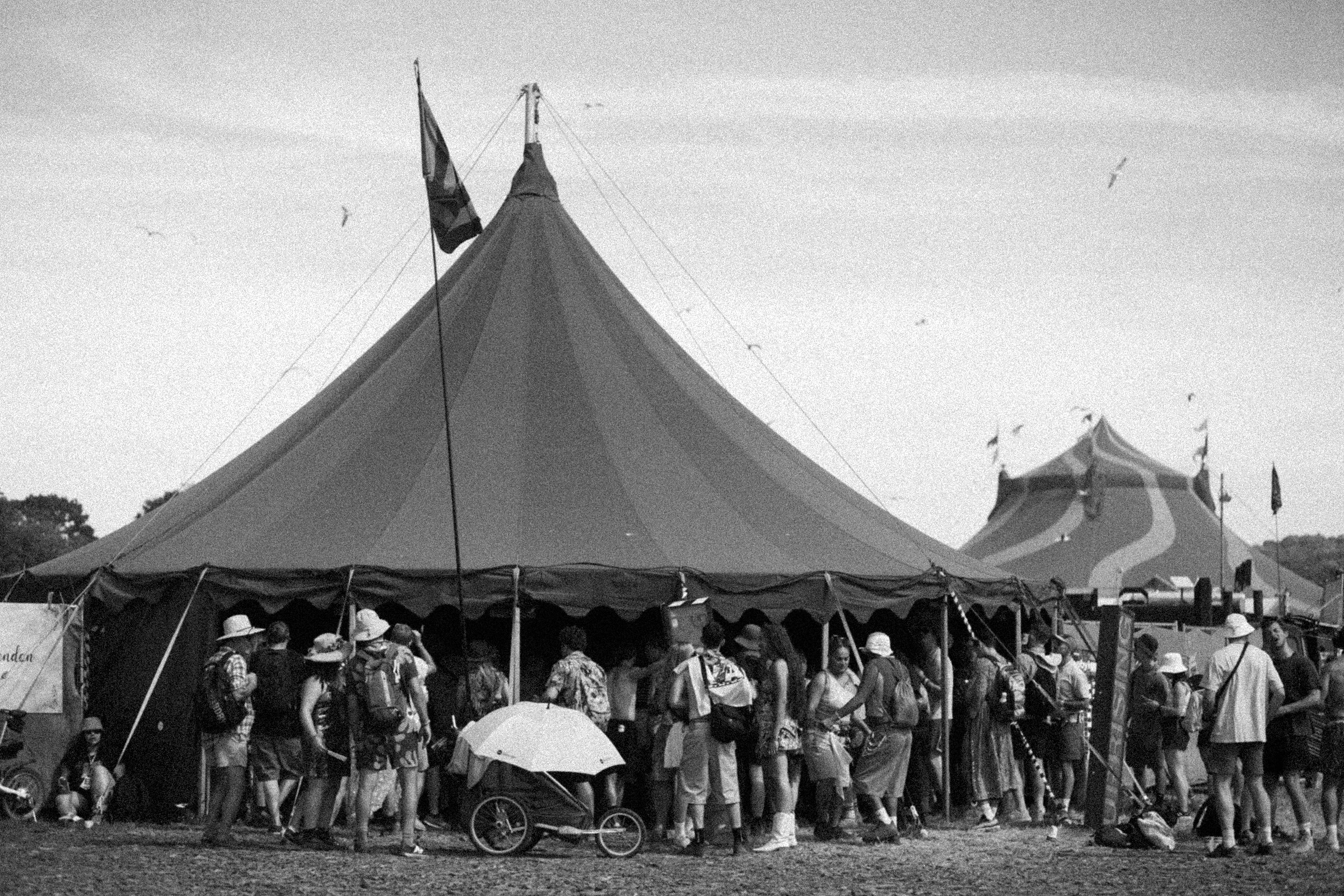 Features
Features
Babylon Uprising is Glastonbury’s best kept secret for heavyweight dance music
Glastonbury’s tiny, anarchic home for soundsystem culture is a word of mouth favourite. We joined the uprising this year and report from inside
Deep in the heart of Glastonbury’s central strip sits an unassuming tent laying down bass-weighted music until late into the night. Often spilling out the sides with passing-by punters who just can’t seem to peel themselves away from the action once inside, Babylon Uprising is Glastonbury’s best kept secret — a tiny anarchic home to some of the most unbeatable day-to-night antics, far from the depths of the festival’s dance music corners.
Despite its unsuspecting location, the stage has remained a primary force in what the team calls ‘Babylon’, Glastonbury’s central area, for over a decade. “Our first year here was in 2011,” recalls Dean, one of many figureheads behind Babylon Uprising, as he sits in the tent’s cosy, living room-style backstage area dubbed ‘Maudes’, a world apart from the raucous energy out front. “We only had about five people on the team at the time, all of us local to Glastonbury.”
With its self-proclaimed “DIY punk ethos”, Babylon Uprising has grown into a staple part of the Glastonbury experience in the 13 years since its inception, known for its hefty line-ups and intimate environment. The team recall having just a week’s notice to build the stage after getting the call-up from the festival giant back in 2011, enlisting help from their friends to get it built quickly. “We had no idea what we were doing,” laughs Babylon Uprising’s Creative Director, Ed. “We turned up with a transit van full of pallets to build a stage. We didn’t even book any DJs, we just played ourselves. We did about 40 hours each!”
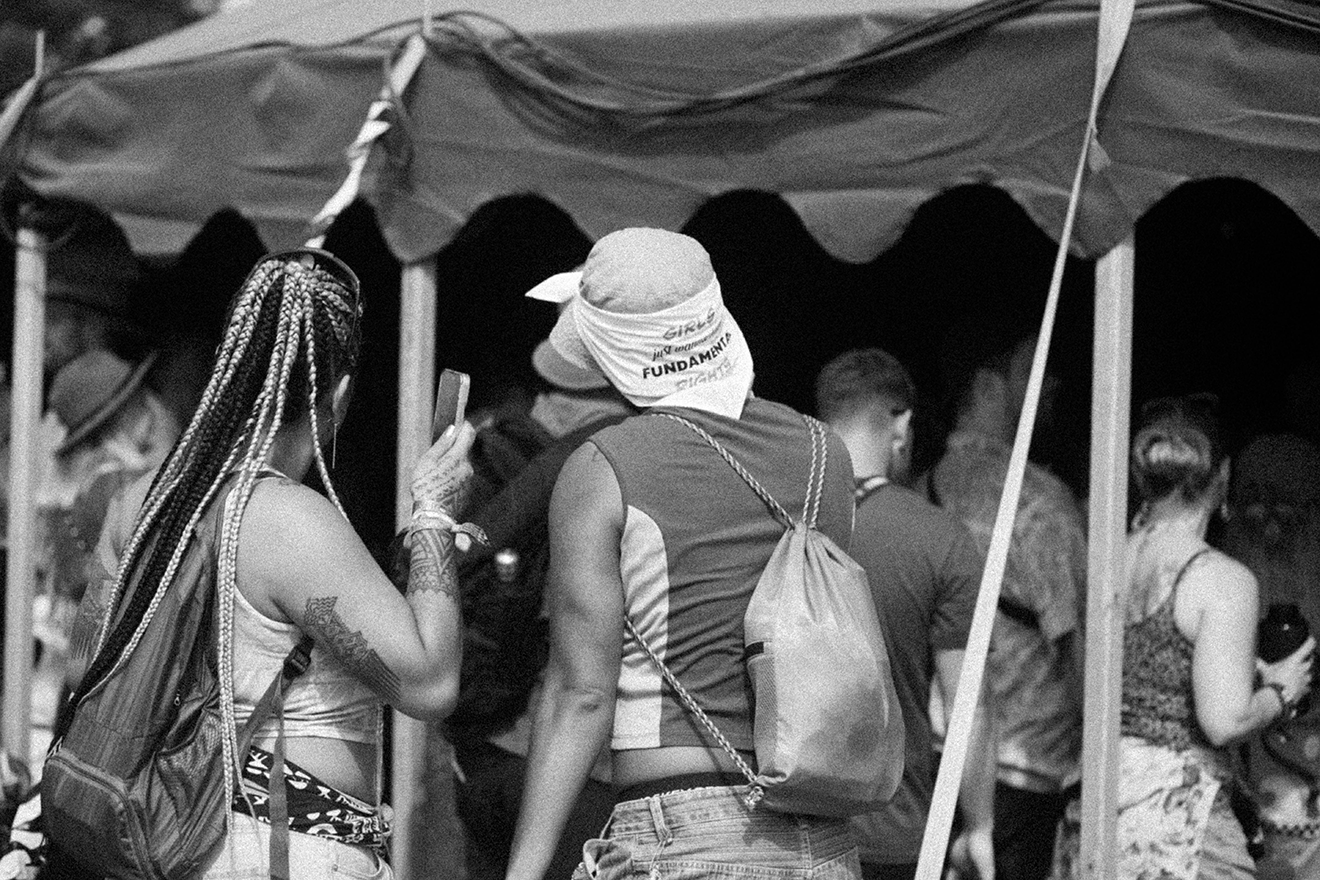
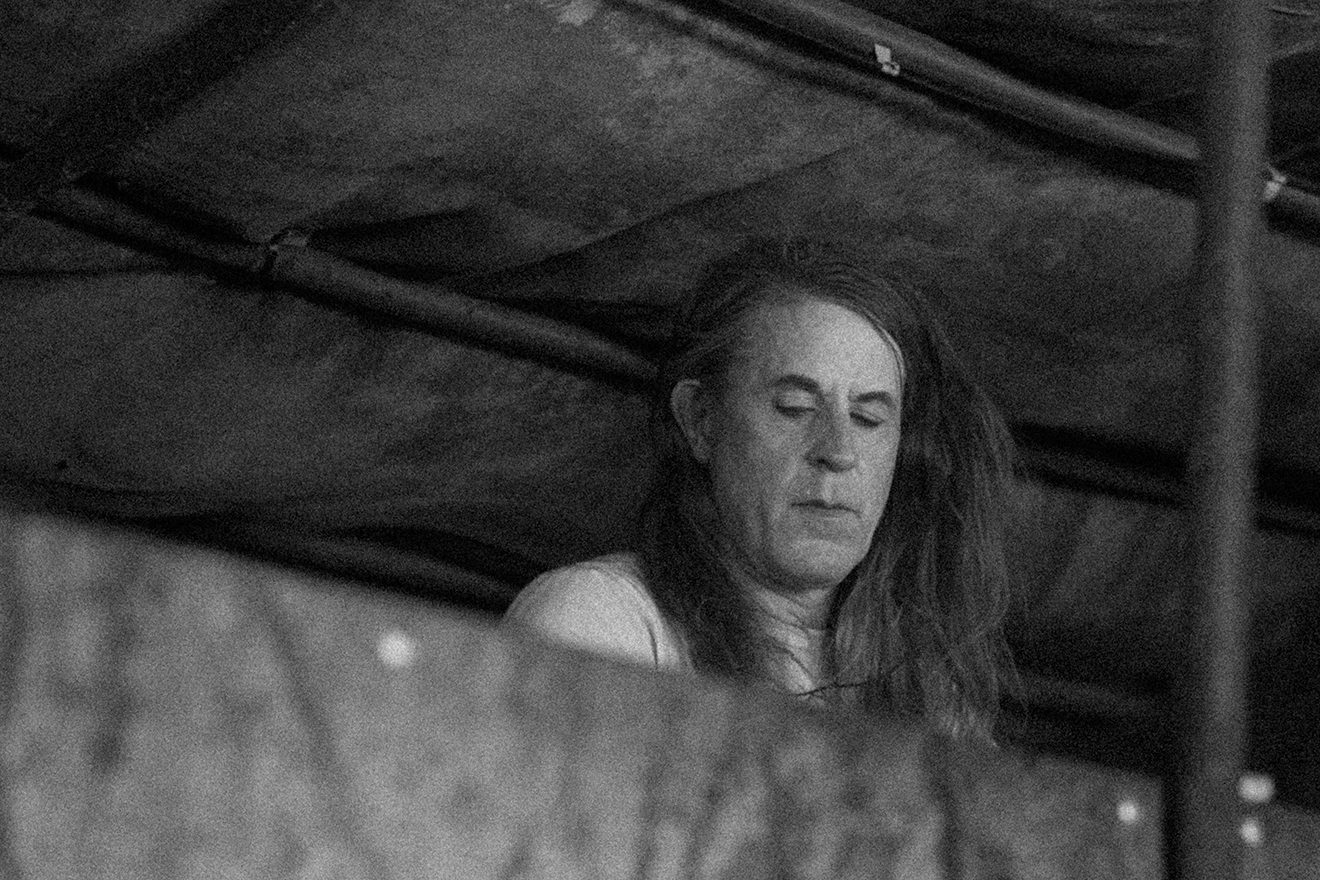
Even now, it’s all hands on deck for the Babylon Uprising team. Comprising a much larger crew today than its original fivesome, the stage still relies on its community to pull off such a feat of production and programming every year. “Everything is run super democratically,” explains Dean. “We’re completely non-profit, non-commercial, and no one here gets paid. We don’t get any budget for artists so it’s always a bit of a blag to try and get people to play, which I know can be a bit of a red flag in the industry, but people know we’re not making any profit off of this.”
Read this next: How Arcadia transformed a war machine into a party paradise at Glastonbury
What that means, Dean explains, is that the DJs who play at Babylon Uprising each year do so out of pure love for the music. “Artists play because they just love playing, and that’s really reflected in the vibe,” Dean says. Since it doesn’t receive a budget, Babylon Uprising relies on the artists already booked to play at Glastonbury, meaning they have to consult the festival line-up after its release. “We have to wait to see who’s already on site, which is why our line-up always tends to be pretty late in release,” Ed says.
This year’s Babylon bill features a wall-to-wall selection of dance music’s latest stars right down to new, emerging talent. Over the weekend, you could expect to see a cross-continental back-to-back from Atlanta’s Nikki Nair and London’s DJ ADHD, a set from Kurupt FM’s Danny Rankin, or an all-day takeover from Jeremiah Asiamah featuring the likes of L-Vis 1990, Charlotte Plank, and p-rallel. From 140 heaters and head-rolling jungle to heavy dub and dembow riddims, Babylon Uprising never fails to supply hot and heavy dance music on even the most blistering of days.
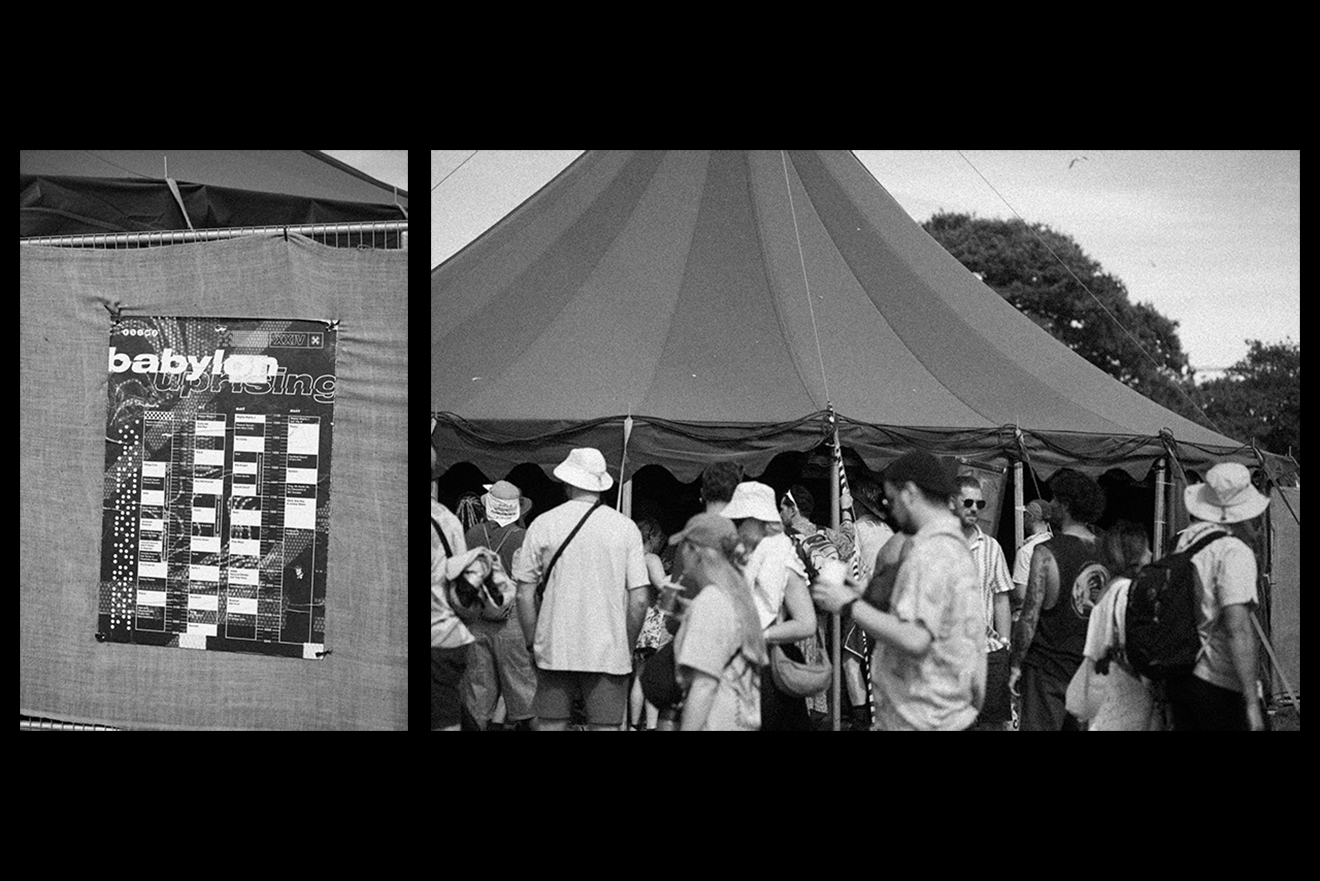
“We’re at a point now where we’ve built up a good relationship with a lot of artists, so they email us as soon as they know they’re going to be on site asking if we have any slots,” explains Ed. “Every year we make sure we retain a good few slots to give up-and-coming artists a chance, we’ll bring through people you may not necessarily have heard of who might have never played Glastonbury before,” he says. “It’s a joy for them to be here and a big deal for them, we’re blessed to have a space where we can offer that because we remember what it was like when we first started.”
Read this next: Children of the original travelling soundsystem DJs are upholding their parent's legacy
Come Sunday night, Babylon Uprising celebrates another year in operation with a mammoth back-to-back from a selection of the artists who performed throughout the weekend alongside the core members of the team. Gridlock In Parliament, as they call it, takes place over the course of eight hours featuring dozens of DJs and crew, each going one-for-one behind the decks. “It’s absolute chaos,” Dean smiles.
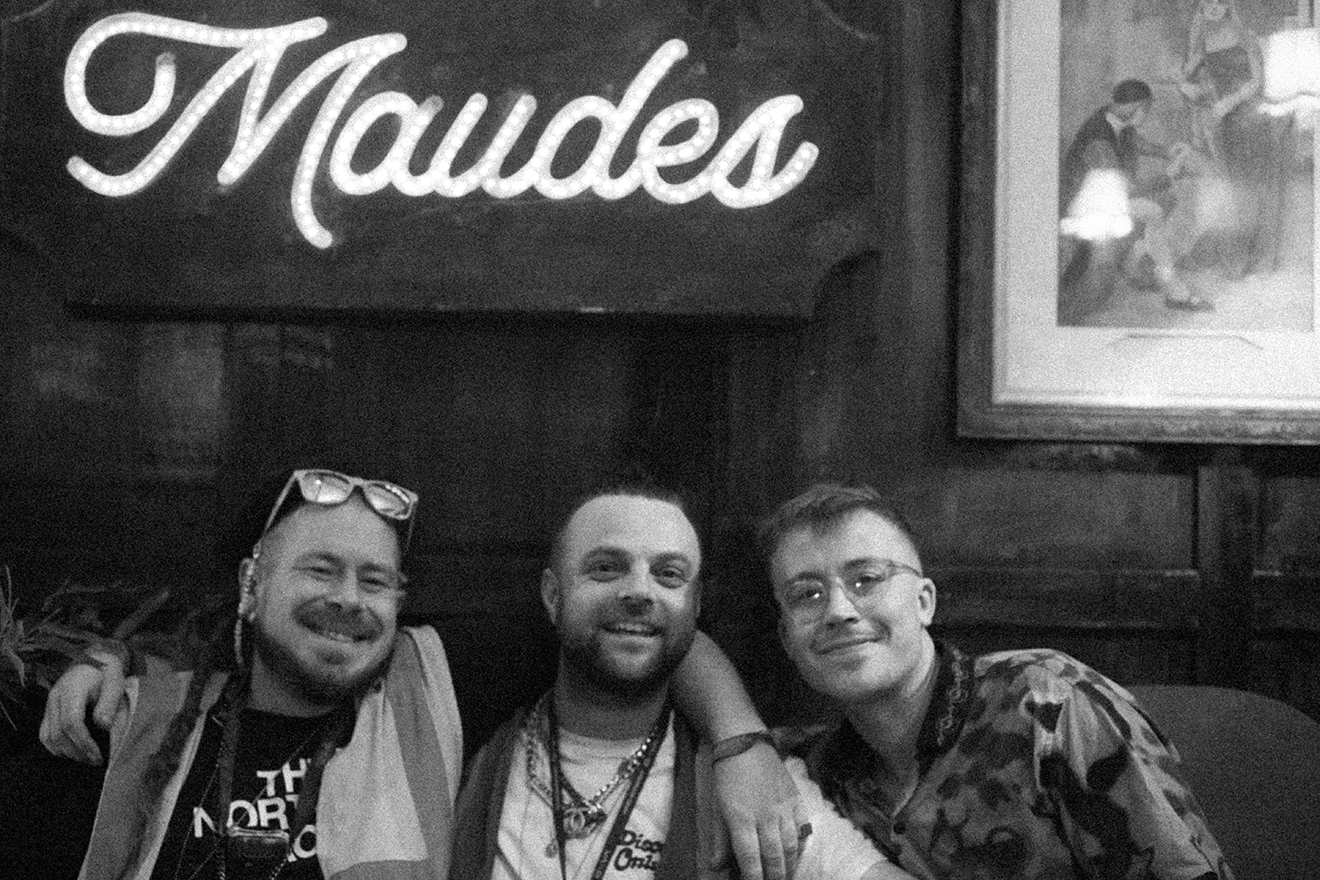
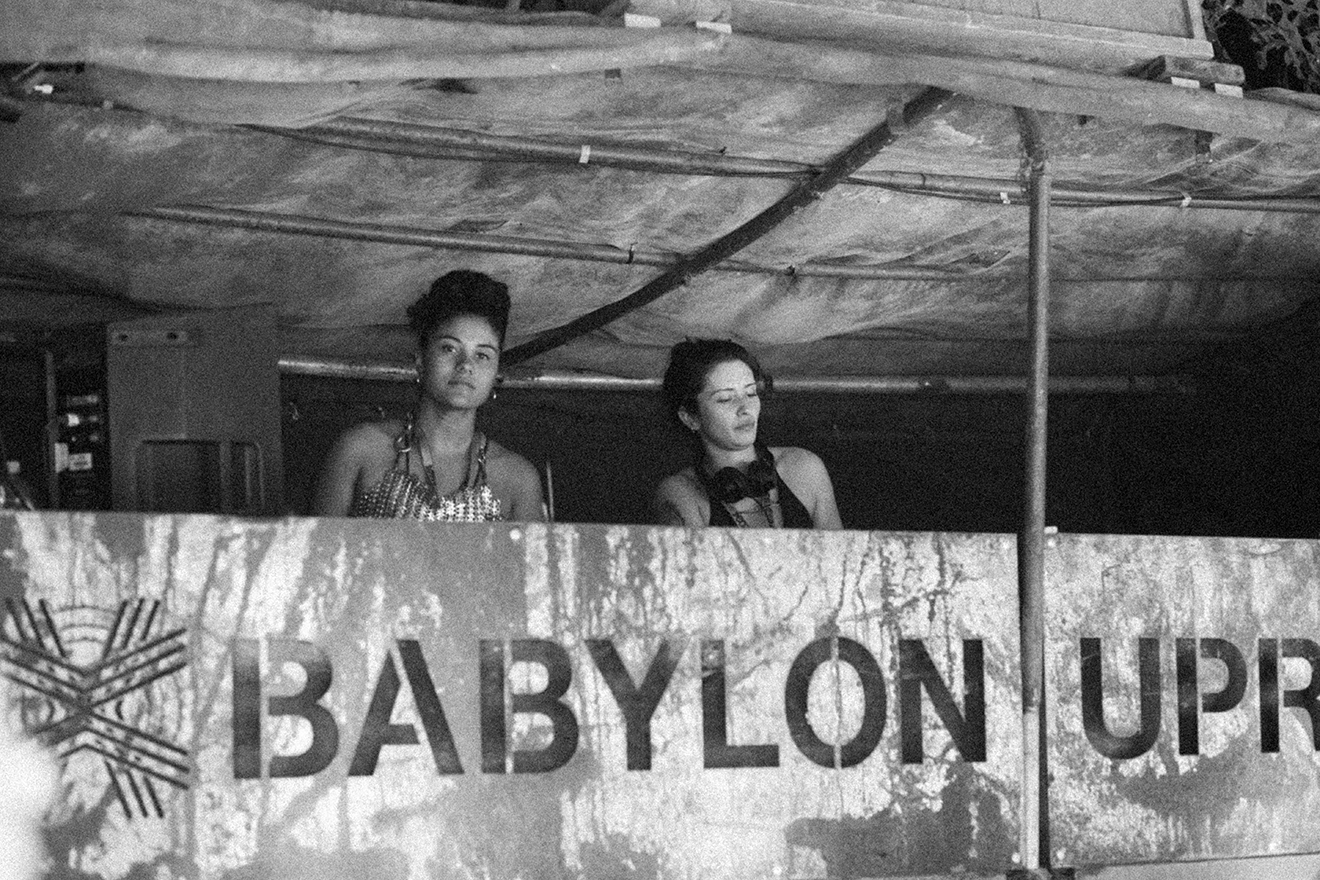
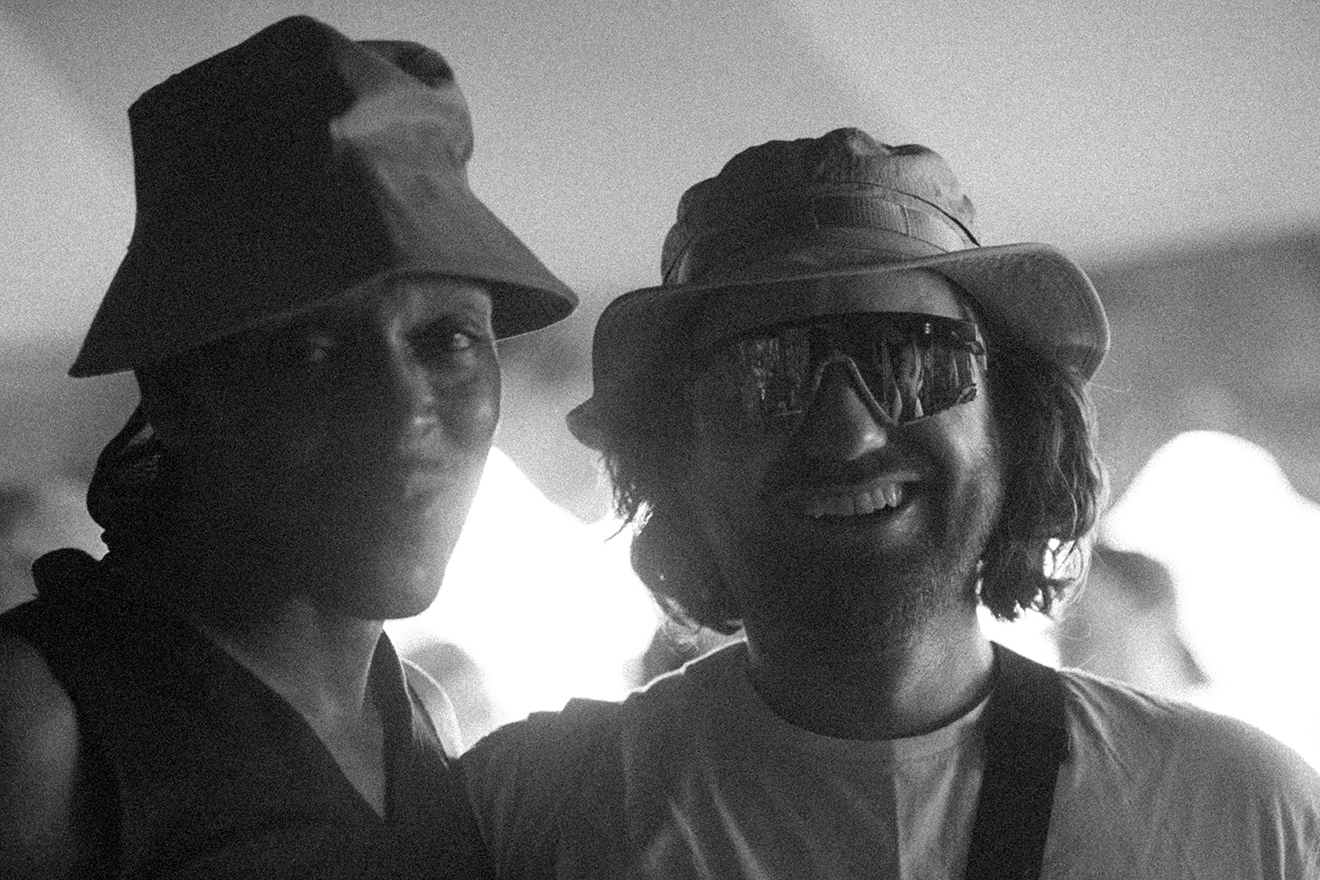
With a constantly shifting vibe throughout the day, Babylon Uprising always feels like a different stage each time you enter. “It’s quite an organic beast,” says Ed. “Crowds shift from morning to afternoon, it’s always moving and changing. It’s a beautiful thing to watch,” he explains. Inside, the energy grows through the afternoon from an intimate club-like environment to a rowdy hotspot that you’ll find hard to step out of, with a broad spread of your favourite DJs throughout the weekend.
It’s no surprise that Babylon Uprising has remained an essential dance music hub on site for more than a decade. It certainly fits the original Glastonbury ethos, hosting the same DIY renegade spirit that the festival was built on all those years ago, with a hardworking team who simply love what they do. “There’s no ulterior motive here,” says Ed. “We’ve been running soundsystems for the best part of 20 years, but Glastonbury is the one place we know we can come back together each year without fail. It’s really special.”
Keep up to date on all things Babylon Uprising here
Gemma Ross is Mixmag's Assistant Editor, follow her on Twitter


